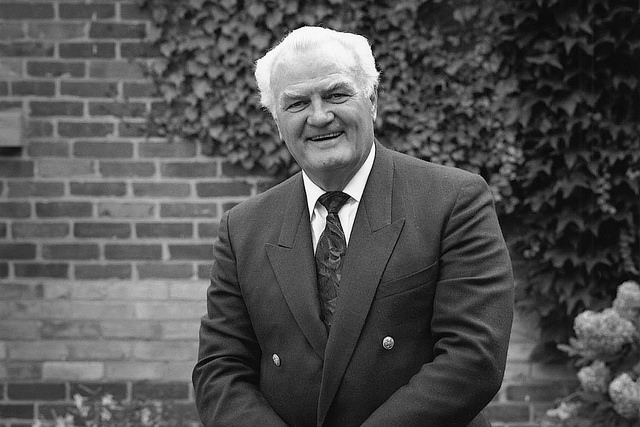
The Canadian tenor Jon Vickers, who brought “a colossal voice and raw dramatic intensity” to some of opera’s most powerful roles, passed away on Friday following a battle with Alzheimer’s disease. He was 88.
After studying at Toronto’s Royal Conservatory of Music, Vickers rose to prominence in the late 1950s and early 60s with appearances at London’s Royal Opera House, Covent Garden and the Metropolitan Opera. His recordings suggest that he had an extraordinary ability to lose himself in the character and dramatically “go for broke.” His personality was reportedly volatile and quick-tempered. During a 1975 Dallas Opera performance of Wagner’s Tristan and Isolde, Vickers broke character to chastise the audience for coughing. You can hear a recording of the incident here.
Here is an excerpt from Vickers’ 1960 recording of Verdi’s Otello with the Rome Opera Orchestra and Chorus. The haunting Dio! mi potevi scagliar is from the third act of Otello. The jealous Otello is losing his grip on reality, believing that Desdemona has been unfaithful with Cassio. Following her exit from the room, he is left alone to ask God, “Why have you afflicted me in this manner?”
This late-Verdi score, which premiered in 1887 (over 15 years after Aida), integrates vocal lines and orchestra in a remarkable way. Following a long chromatic descent into Hell, we hear a numb, obsessively repeated string motive as Otello enters a dark inner world of contemplation:
Here are a few more links:
[unordered_list style=”tick”]
- The extended Love-Duet Finale of Act 1 from Otello. Vickers discusses the role here.
- Now the Great Bear from Act 1 of Benjamin Britten’s Peter Grimes.
- È la solita storia del pastore from Act 2 of Francesco Cilea’s L’arlesiana.
- Ein Schwert verhiess mir der Vate from Wagner’s Die Walküre.
- Find Jon Vickers’ recordings on iTunes.
- Vickers’ biography, A Hero’s Life.
[/unordered_list]

 Today is the 100th birthday of twentieth century English composer Benjamin Britten (1913-1976). Let’s celebrate by listening to Britten’s Four Sea Interludes from the opera, Peter Grimes. Played during scene changes, these interludes express the drama of the opera’s unsettling story. As you listen, consider the mood that Britten evokes and pay attention to the orchestration. You can read the synopsis of the entire opera
Today is the 100th birthday of twentieth century English composer Benjamin Britten (1913-1976). Let’s celebrate by listening to Britten’s Four Sea Interludes from the opera, Peter Grimes. Played during scene changes, these interludes express the drama of the opera’s unsettling story. As you listen, consider the mood that Britten evokes and pay attention to the orchestration. You can read the synopsis of the entire opera